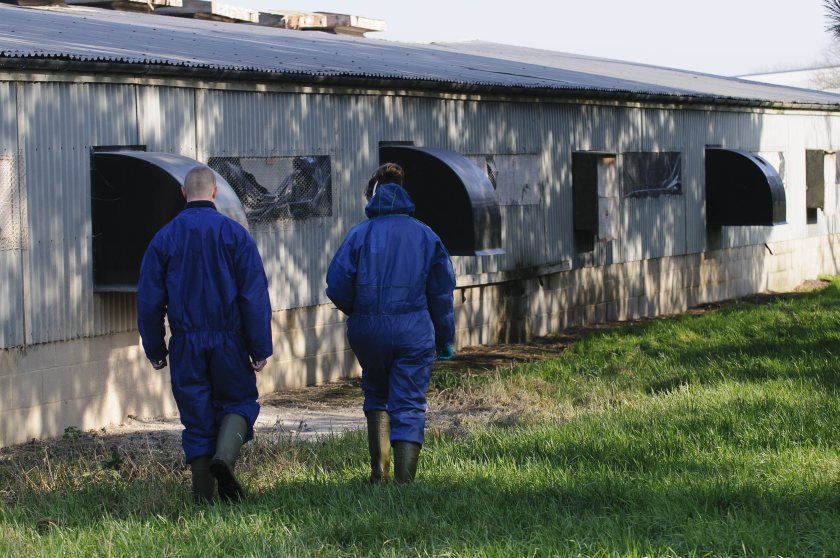
New cases of highly pathogenic avian influenza have been confirmed this week, with outbreaks in new areas of England and in Northern Ireland.
High-path bird flu of the H5N1 strain was confirmed in commercial free range hens near Sudbury, South Suffolk on Wednesday (8 December).
All birds on the infected farm will be humanely culled, Defra explained in its latest update on the situation.
The disease was also recorded yesterday in turkeys at an eighth premises near Thirsk, Hambleton, North Yorkshire. All birds will be culled.
A 3km Protection Zone and 10km Surveillance Zone have been put in place around each of the infected sites.
H5N1 avian influenza was also confirmed on two separate premises in Northern Ireland on Tuesday (7 December).
These include on farms in Aughnacloy, County Tyrone and in Broughshane, County Antrim.
On the same day, outbreaks in England occurred on a farm in Pocklington, East Yorkshire and a fourth premises near Barrow upon Soar, Charnwood, Leicestershire.
The cases come as the Chief Veterinary Officers for England, Scotland, Wales and Northern Ireland recently agreed to bring in mandatory housing measures to protect poultry and captive birds.
The tougher rules, which came into force on 29 November, means that it is now a legal requirement for all keepers across the UK to keep their birds indoors.
They build on the strengthened biosecurity regulations that were brought in across Britain as part of the Avian Influenza Prevention Zone (AIPZ) on 3 November and in Northern Ireland on 17 November.
Wild birds migrating to the UK from mainland Europe during the winter months can carry the disease and this can lead to cases in poultry and other captive birds.
Public health advice remains that the risk to human health from the virus is very low and food standards bodies advise that it poses a very low food safety risk for consumers.
Scotland’s Chief Veterinary Officer Sheila Voas said last week: “We have already made clear that all bird keepers must ensure that their biosecurity is up to scratch to protect their birds from disease and prevent any contact between their birds and wild birds.
"Keepers who are concerned about the health or welfare of their flock should seek veterinary advice immediately.
"Your private vet, or your local Animal and Plant Health Agency office, will also be able to provide practical advice on keeping your birds safe from infection.
“Any dead wild swans, geese, ducks or birds of prey, or five or more dead wild birds of other species (including gulls) in the same location at the same time, should be reported to Defra’s national telephone helpline."
What can I do to prevent bird flu?
Poultry and captive bird keepers are being advised by the government to be vigilant for any signs of disease in their birds and any wild birds, and seek advice from their vet if they have any concerns.
• House or net all poultry and captive birds to keep them separate from wild birds
• Cleanse and disinfect clothing, footwear, equipment and vehicles before and after contact with poultry and captive birds – if practical, use disposable protective clothing
• Reduce the movement of people, vehicles or equipment to and from areas where poultry and captive birds are kept, to minimise contamination from manure, slurry and other products, and use effective vermin control
• Thoroughly cleanse and disinfect housing on a continuous basis
• Keep fresh disinfectant at the right concentration at all farm and poultry housing entry and exit points
• Minimise direct and indirect contact between poultry and captive birds and wild birds, including making sure all feed and water is not accessible to wild birds
Bird keepers should report suspicion of disease in England to Defra Rural Services Helpline on 03000 200 301, in Wales contact 0300 303 8268.
In Scotland, keepers should contact their local Field Services Office. In Northern Ireland contact DAERA on 0300 200 7840.
